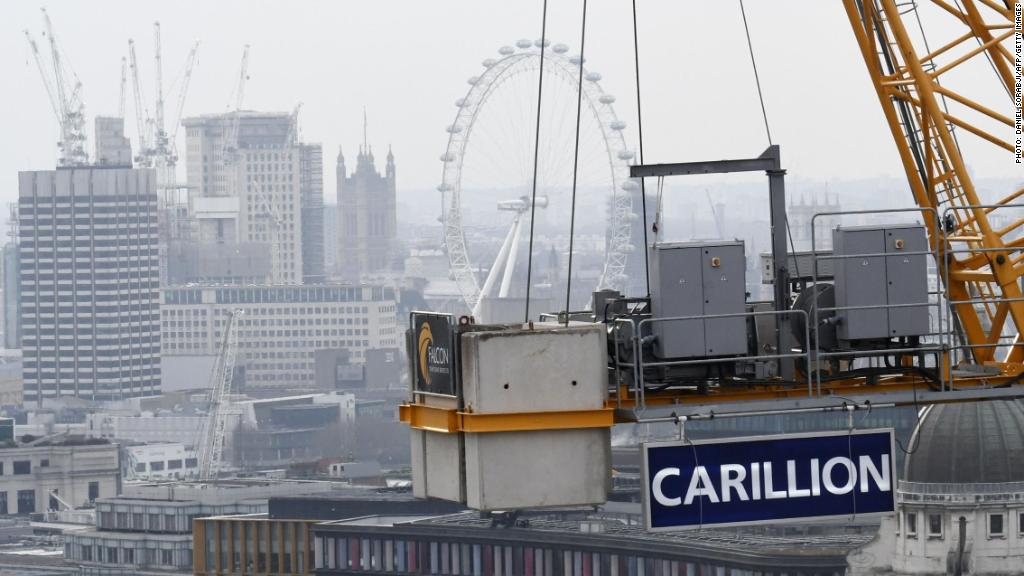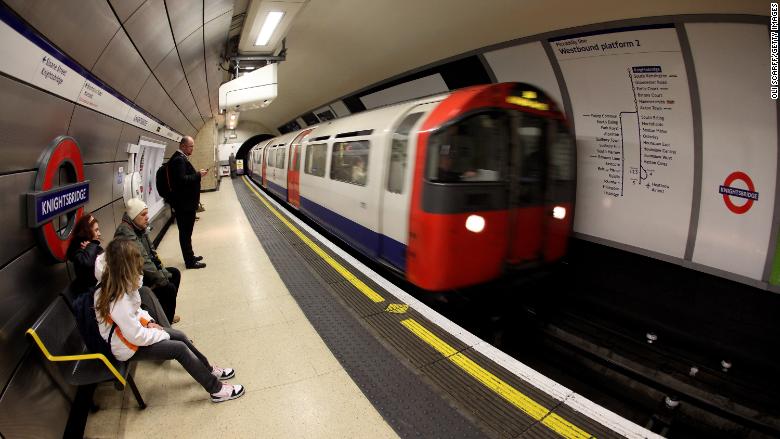
Is Britain's outsourcing industry in trouble?
Shares in Capita plummeted more than 40% on Wednesday after the major British outsourcing company issued a profit warning and announced a drastic turnaround plan.
The company, which employs 70,000 people worldwide, is the latest government contractor to run into trouble in Britain. Another major outsourcing firm -- Carillion (CIOIF) -- went bust earlier in January, putting 43,000 jobs at risk.
The two firms are key players in an industry in which private sector companies bid on government contracts to provide services such as school meals, prison security and health care administration.
Critics argue that the companies, in order to win business, sometimes undertake projects with very thin margins -- which can lead to increased debt and risk.
Carillion's average operating margins in 2016 were 4.9%, while Capita's were a healthier 11.1%.
Britain is considered a world leader in the outsourcing industry, which was pioneered by former Prime Minister Margaret Thatcher in the 1980s and developed by subsequent governments of all political leanings.
Capita (CTAGY) said Wednesday that it would seek to raise new funds and cut its debt burden. It plans to stop paying a dividend, slash costs and sell off business units.
"Today, Capita is too complex, it is driven by a short-term focus and lacks operational discipline and financial flexibility," said CEO Jonathan Lewis, who joined the company in December.
Capita secured over 550 public sector contracts over the past three years, according to tracking firm Tussell. Its haul in 2017 was the most of any single supplier, although it accounted for just 0.2% of all government contracts.
It recently won a contract to manage Wi-Fi networks inside London subway stations, for example. Roughly half of its revenue comes from government contracts.

The collapse of Capita's stock price drew instant comparisons to the final days of Carillion.
"It's the same issues," said Neil Wilson, senior market analyst at ETX Capital. "Sprawling growth over the years, trying to get their fingers into too many pies."
Wilson said that the entire industry model would come under "additional pressure" if another firm goes under.
Frances O'Grady, general secretary of the Trades Union Congress, called for more transparency in the industry.
"The #Capita profit warning is really worrying. That's why the @The_TUC is calling for an urgent risk assessment of all large outsourcing firms. We can't afford another Carillion," she tweeted.
The British government issued a statement Wednesday saying it was monitoring the "financial health of all of our strategic suppliers, including Capita."
"We do not believe that any of our strategic suppliers are in a comparable position to Carillion," it added.
Industry supporters argue that the outsourcing model is an effective way to shift costs and risks from the government to willing companies.
"What we want is to provide good-quality public services delivered at best value to the taxpayer," Prime Minister Theresa May said after Carillion's collapse. "We were a customer of Carillion, not the manager."


